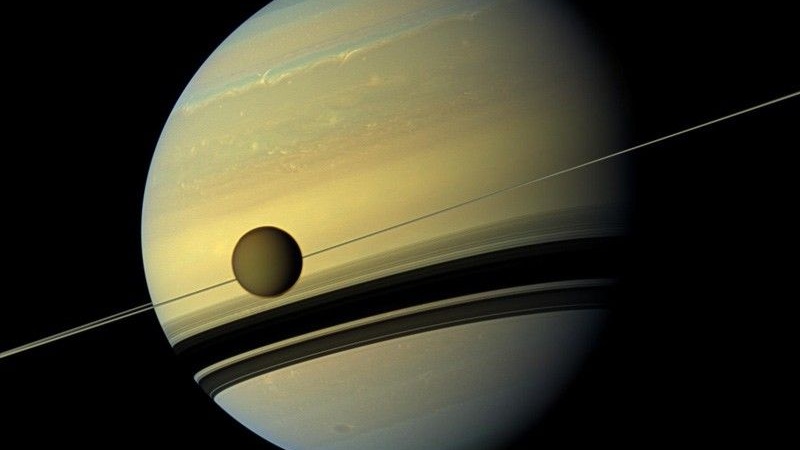Mars Clouds Drier Than Thought
Breaking space news, the latest updates on rocket launches, skywatching events and more!
You are now subscribed
Your newsletter sign-up was successful
Want to add more newsletters?

Delivered daily
Daily Newsletter
Breaking space news, the latest updates on rocket launches, skywatching events and more!

Once a month
Watch This Space
Sign up to our monthly entertainment newsletter to keep up with all our coverage of the latest sci-fi and space movies, tv shows, games and books.

Once a week
Night Sky This Week
Discover this week's must-see night sky events, moon phases, and stunning astrophotos. Sign up for our skywatching newsletter and explore the universe with us!

Twice a month
Strange New Words
Space.com's Sci-Fi Reader's Club. Read a sci-fi short story every month and join a virtual community of fellow science fiction fans!
Clouds over Mars contain less water than previously thought, according to new research using simulated clouds in a lab here on Earth.
The clouds under study are made of water ice, like some clouds on Earth, said Tony Colaprete of NASA's Ames Research Center.
"However, they are forming at very cold temperatures, often below minus 100 degrees Celsius (minus 148 degrees Fahrenheit)," Colaprete said "What we have found in our laboratory studies is that it is much harder to initiate cloud formation at these cloud temperatures than what we thought."
Drier air
In the simulation, the cloud particles are larger than expected, and they "fall out of the atmosphere more quickly and, thus, result in less cloud mass and a drier atmosphere," Colaprete explained.
Colaprete will present his findings next week at the annual American Geophysical Union (AGU) fall meeting at San Francisco.
Previously, scientists believed that martian clouds would form at 100 percent relative humidity, but the new study shows that martian air has to be more supersaturated with water to form clouds than scientists theorized before.
Breaking space news, the latest updates on rocket launches, skywatching events and more!
"We want to understand the climate of Mars and how the martian water cycle operates," Colaprete said. "Clouds are integral to this system, just as on Earth. However, assuming the clouds form or behave the same as on Earth, may be a bad assumption."
According to Colaprete, more accurate understanding of the processes that control martian clouds and water cycle are critical to understanding Mars' current and past climates.
The water cycle
A large water ice cap at the martian north pole dominates the martian water cycle. During the northern summer, this water ice cap evaporates, and winds carry the resulting water vapor to the south pole, according to Colaprete.
"The amount of water in the martian atmosphere varies greatly in space and time," Colaprete observed. Clouds in the atmosphere largely control the amount of water that comes off of the north pole and migrates to the south pole.
"Water that reaches the southern winter pole freezes to the surface," Colaprete said. "In the southern spring, this water re-evaporates and returns to the northern polar cap. The cycle is repeated year after year."
If all the water in the atmosphere were to freeze out to the surface, it would make a layer of ice about one-fifth the thickness of a human hair, according to Colaprete.
"Cloud mass is typically only 10 to 20 percent of the total water content. However, the thin martian atmosphere is much more sensitive/reactive to the influence of these clouds," he said.
- Best Mars Images Ever
- The Wildest Weather in the Galaxy
- Gallery: Visualizations of Mars

Space.com is the premier source of space exploration, innovation and astronomy news, chronicling (and celebrating) humanity's ongoing expansion across the final frontier. Originally founded in 1999, Space.com is, and always has been, the passion of writers and editors who are space fans and also trained journalists. Our current news team consists of Editor-in-Chief Tariq Malik; Editor Hanneke Weitering, Senior Space Writer Mike Wall; Senior Writer Meghan Bartels; Senior Writer Chelsea Gohd, Senior Writer Tereza Pultarova and Staff Writer Alexander Cox, focusing on e-commerce. Senior Producer Steve Spaleta oversees our space videos, with Diana Whitcroft as our Social Media Editor.
